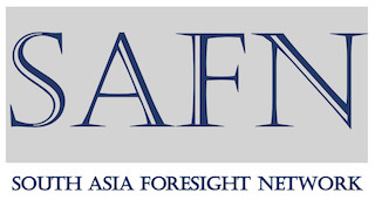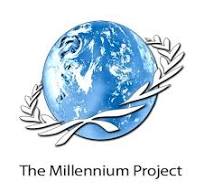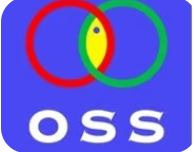Economic Crime & Geopolitics Index ECGI: Key Insights
Explore the Economic Crime and Geopolitics Index (ECGI), which uniquely combines corruption levels, economic crime severity, public response, and geopolitical influence to provide a comprehensive understanding of how these factors shape political outcomes in an unstable global environment.
NEWSECGC
Economic Crime & Geopolitics Center at SAFN
9/15/2025


Introduction
The Economic Crime and Geopolitics Index (ECGI) is a pioneering risk assessment tool designed to capture the intersection between corruption, geopolitical pressures, and the likelihood of political instability. The ECGI index was conceptualized and architected by Asanga Abeyagoonasekera, and further tested and developed by the Economic Crime and Geopolitics Center (ECGC) under the South Asia Foresight Network (SAFN), a regional network operating under the Millennium Project in Washington, D.C. At present, the index is in its testing phase across the Millennium Project’s global network, which spans more than 70 countries.
In an increasingly unstable global environment, the intersection of economic crime and geopolitics plays a decisive role in shaping political outcomes. Unlike conventional indices that focus solely on corruption or governance, the ECGI brings together four dimensions—corruption levels, economic crime severity, public response, and geopolitical influence—to identify where pressures are most likely to erupt into nationwide mobilizations.
The experience of recent years underscores this need: Sri Lanka’s 2022 uprising, Bangladesh’s mass protests in 2024, and Nepal’s people’s revolt in 2025 all revealed how systemic corruption, weakened governance, and foreign pressures can converge to destabilize entire states. The ECGI provides a structured lens to anticipate such crises before they unfold.
Importance of ECGI
The ECGI serves as a forward-looking early-warning mechanism for governments, investors, and security analysts. High scores on the index highlight countries where entrenched corruption and economic crimes weaken institutions, where citizens are mobilized against failing governance, and where foreign influence magnifies domestic tensions. These are the very conditions that have historically triggered mass uprisings and rapid political change.
By identifying high-risk states, ECGI enables:
Policymakers to prioritize reforms and strengthen resilience before instability escalates.
Investors to assess exposure to political upheaval and economic shocks.
Regional analysts to anticipate where instability could spill across borders, threatening wider security.
Ultimately, ECGI highlights not just governance failures but also the potential for systemic rupture—making it a crucial tool in a region where public frustration, weak institutions, and geopolitical rivalry often combine to ignite political transformation.
Analysis of 2025 Data
The 2025 ECGI data, though still in the testing phase, reveal a concerning concentration of high-risk countries in South and Southeast Asia, highlighting the multidimensional nature of economic and geopolitical vulnerabilities. The index integrates four critical variables: Corruption Perceptions Index (CPI), Economic Crime Severity, Public Response, and Geopolitical Influence, each offering unique insights into systemic risks.
Corruption Perceptions Index (CPI): CPI scores serve as a foundational metric for understanding corruption within public institutions. Lower CPI values indicate higher perceived corruption, eroding trust in government, impeding economic growth, and weakening policy implementation. Countries like Pakistan (27), Bangladesh (23), and Sri Lanka (32) show particularly low CPI scores, reflecting entrenched governance challenges that amplify susceptibility to financial crimes and administrative inefficiency.
Economic Crime Severity: This variable measures both the prevalence and sophistication of economic crimes, including fraud, money laundering, and tax evasion. High severity scores indicate frequent violations and large-scale disruption potential. Pakistan and Bangladesh, scoring 8/10, reflect systemic weaknesses in enforcement and regulatory oversight, making these countries highly vulnerable to economic shocks.
Public Response: Public response evaluates societal engagement in holding institutions accountable, including civic activism, protests, and media scrutiny. Strong public response can mitigate risks by promoting transparency and pressuring governments toward reforms. In Sri Lanka and Nepal, scores of 8/10 suggest active civic monitoring, highlighting the role of citizens as a counterbalance to institutional weaknesses, even amidst widespread corruption.
Geopolitical Influence: Geopolitical influence captures the impact of foreign presence, strategic location, and international alignments on domestic vulnerabilities. Nations like Pakistan (9/10) and Sri Lanka (8/10) operate at the intersection of domestic fragility and international attention, making them highly exposed to foreign pressures, investment fluctuations, and diplomatic maneuvering. Countries with high geopolitical relevance face both heightened risks and opportunities, as external actors can exacerbate or mitigate domestic vulnerabilities.
Synthesis of Variables: The convergence of low CPI, high economic crime severity, strong public response, and significant geopolitical influence explains why Pakistan (77.2), Indonesia (75.3), Bangladesh (74.3), and Sri Lanka (74.2) top the ECGI. These nations confront a complex environment where corruption, institutional weaknesses, civic activism, and external pressures mutually reinforce one another. Medium-risk countries (61.8–69.2), including the Philippines, Thailand, and Malaysia, show moderate scores across variables, reflecting relatively stronger governance, lower exposure to high-level corruption, and manageable geopolitical influence. Low-risk countries, such as Singapore and Brunei, exhibit strong governance, low corruption, and balanced international engagement, serving as benchmarks for institutional resilience.
ECGI 2025 Country Scores
The line graph below visualizes ECGI scores alphabetically from 18 countries in South Asia and Southeast Asia, with high-risk nations above 70 prominently highlighted in red, demonstrating the clustering of vulnerabilities across the region. Out of nine nations classified as high risk, three have already undergone the full cycle from uprising to new regime. The remaining six face significant instability—ranging from civil war in Myanmar, to continuous protests in Indonesia and India, to the tightening autocratic grip in Cambodia, Pakistan’s recurring cycles of political collapse, and Afghanistan’s enduring governance vacuum under the Taliban.
Conclusion
The ECGI, currently in its testing stage, provides a vital tool for assessing the dual threats of economic crime and geopolitical vulnerabilities. Countries scoring above 70 face urgent challenges that demand comprehensive policy responses. Addressing corruption (CPI) and economic crime severity requires strengthening regulatory frameworks, enhancing institutional oversight, and improving financial monitoring systems. Simultaneously, promoting active public engagement can amplify transparency, accountability, and citizen-driven reforms.
High geopolitical influence necessitates strategic foreign policy management, balancing international partnerships while minimizing external interference that could exacerbate domestic risks. Medium- and low-risk nations serve as practical examples, demonstrating how robust governance, proactive civic engagement, and calibrated diplomatic engagement can mitigate systemic vulnerabilities.
By continuously monitoring ECGI trends, even at this testing stage, stakeholders—including governments, investors, and regional security analysts—can anticipate emerging risks, prioritize targeted interventions, and develop informed strategies to enhance economic resilience, governance integrity, and regional stability.
ECGI Report will be available by December 2025. For more information on ECGI contact SAFN.








